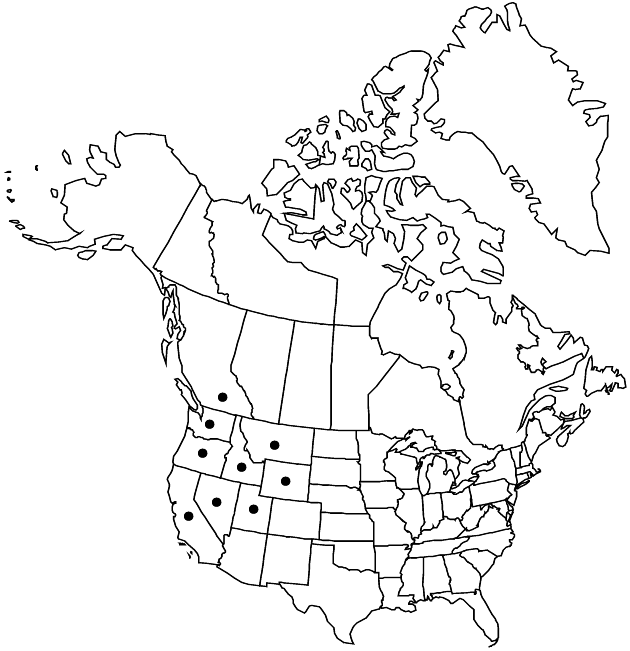Erigeron pumilus var. intermedius
Brittonia 6: 180. 1947.
Synonyms: Erigeron pumilus subsp. intermedius Cronquist Erigeron pumilus var. gracilior Cronquist
Treatment appears in FNA Volume 20. Treatment on page 289.
Revision as of 18:43, 24 September 2019 by FNA>Volume Importer
36, inner of 12–16(–20) bristles. 2n = 18, ray corollas usually pink, sometimes white. disc corollas: indurate portions relatively dull, glabrous or slightly puberulent. pappi: outer of coarse bristles or setiform scales.
Phenology: Flowering May–Aug.
Habitat: Moist or dry soil, meadows or sagebrush
Elevation: 1200–2300(–2800) m
Distribution

B.C., Calif., Idaho, Mont., Nev., Oreg., Utah, Wash., Wyo.
Discussion
Variety gracilior was described by A. Cronquist (1947) as “plants slender, the larger stems either not more than 1.5 mm thick near the base or bearing fewer than 5 heads.” Such plants occur mostly in the southern part of the variety’s range (mostly Idaho and Oregon, some in Washington); while the gracile tendency seems real, many arbitrary identifications must be made if two taxa are recognized.
Selected References
None.
Lower Taxa
None.